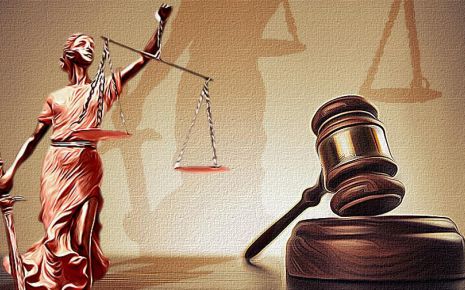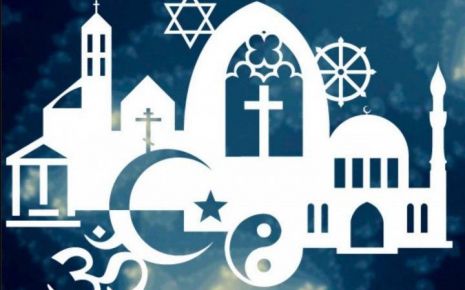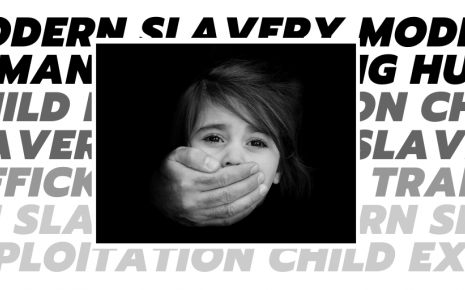A Review of India's Human Rights Protection
By enforcing numerous rules, the State upholds the social order framework,
without which well-ordered social life would be impossible. Many social contract
theorists believe that upholding and defending individual rights is the primary
goal of state formation. Aristotle believed that the state was created for the
basic needs of life and that it persists today to ensure a good living for
everybody.
According to Prof. Laski, a state is recognised by the rights it upholds. Likewise, Locke believed that the goal of the state should be to eliminate any barriers to an individual's personal growth. As a result, the state's primary goal-protecting individual rights and liberties-is acknowledged together with the state's existence.
Since violating someone's dignity can have serious consequences for both that person and society as a whole, maintaining social harmony depends on protecting individual dignity. Certain rights are inalienable to human existence and belong to every individual. These rights are known as human rights and should not be infringed upon on the basis of gender, race, caste, ethnicity, religion, or any other factor. Other names for human rights include inherent, natural, basic, and fundamental rights. Although the name "human rights" dates back to the 20th century, the idea behind them is as old as mankind itself.
It took a while for it to evolve into the current concept after going through several rounds of development. Despite going by different titles, these rights-which include civil rights, liberties, and social, cultural, and economic rights-were recognised in all ancient communities. These rights are fundamental to everyone because they uphold each person's freedom and dignity and eventually advance social welfare.
Individual personality development and growth are essential to the protection of human rights, and these factors ultimately influence the development of the country as a whole. Human rights are protected by a number of international instruments since it is a recognised issue on a global scale. Human rights are an ever-evolving notion that changes to meet the demands of the country and its citizens. Protecting people's human rights is the ultimate goal of both national and international law.
Numerous initiatives have been taken to defend human rights on a global scale. With the adoption of its charter, the United Nations has made a substantial contribution to the advancement and defence of human rights. The United Nations Charter now includes an international bill on human rights. The Preamble, as well as numerous Articles 1, 13(b), 55, 56, 62 (2), 68, and 76 (c) of the UN Charter, contain provisions for the advancement of human rights and basic freedoms.
The Universal Declaration of Human Rights (1948), the International Covenant on Civil and Political Rights (1966), the International Covenant on Economic, Social, and Cultural Rights (1966), and the Optional Protocol to the International Covenant on Civil and Political Rights (1966) are the four international instruments established under the auspices of the United Nations known as the International Bill of Human Rights. The UN Charter is not one of these instruments.
The international human rights regime is expanding steadily over time and offers universally recognised legal norms that all countries ought to adopt and incorporate into their national legal systems. The governments of every country must endeavour to further the welfare of the populace by doing away with all forms of discrimination and guaranteeing everyone's right to equality and justice.
Civil, political, economic, social, and cultural rights are all included in the Universal Declaration of Human Rights. The majority of the human rights outlined in the Universal Declaration of Human Rights are guaranteed by the Constitution. Civil and political rights are found in Part III of the Constitution, whereas economic, social, and cultural rights are found in Part IV. Every statute must be consistent with the Constitution's provisions.
The protection of an individual's dignity is one of the goals and philosophies enshrined in the preamble of the Indian Constitution. In order to achieve this goal, Part III of the Constitution guarantees individuals fundamental rights that are necessary for the formation of a unique personality. These rights include the freedom from exploitation, the equality, the freedom from discrimination, the freedom of religion, the rights to cultural and educational opportunities, and the right to constitutional remedies.
Both the federal and state governments have an obligation to ensure that every person has the means to exercise their human rights. The government's obligations to advance public welfare and safeguard citizens' human rights are established by the constitution's Directive Principles of State Policy, which are codified in Part IV of the document.
These serve as guidelines for the state when formulating policies pertaining to distributive justice, the right to work, the right to education, social security, just and humane working conditions, the promotion of the interests of the weaker sections of society, raising living and nutritional standards, enhancing public health, protecting and enhancing the environment and ecology, and other areas so that every person can fully enjoy their rights.
The judiciary's constitutional responsibility includes protecting people' human rights. The Supreme Court and the High Courts have the authority to act to uphold these rights. The constitution's Articles 32 and 226 establish mechanisms for remedy. A person who feels wronged has the option to file a direct case with the state's Supreme Court or High Court to have their fundamental rights protected, grievances resolved, and enjoyment guaranteed. In certain situations, the court has the authority to grant the necessary directives, orders, and writs, such as those pertaining to habeas corpus, mandamus, prohibition, quo warranto, and certiorari.
The judiciary is the people's ultimate protector of their human rights. In addition to defending the rights listed in the Constitution, it has expanded the definition of fundamental rights and provided interpretation for a number of unlisted rights. People consequently benefit from both enumerated and unenumerated rights.
In the case of Maneka Gandhi v. Union of India, the Supreme Court expanded the meaning of the right to life and inferred other unenumerated rights, including the "right to live with human dignity." The "emanation" theory was advanced by the Supreme Court to provide the fundamental right's existence purpose and vitality. Later, courts recognised that the right to life encompasses the right to live with human dignity in a number of judgements, including People's Union for Civil Liberties and others v. State of Maharashtra and others and Francis Coralie Mullin v. The Administrator, Union Territory of Delhi. As a result, even if certain rights aren't included in Part III of the Constitution, they have been recognised through judicial interpretations.
The courts has loosened the locus standi rule, which states that only an abused party may petition the court for relief of his claims. In the event that public-spirited individuals are unable to invoke the court's jurisdiction because of poverty or any other social or economic limitation, they may now do so through public interest litigation in order to enforce the rights of any other individual or class. The Supreme Court ruled in S.P. Gupta v. Union of India and others that anyone in the public may petition the court to enforce the legal or constitutional rights of people who are unable to access the courts due to poverty or other infirmities.
A person can even file a letter with the court to report rights violations. Public interest litigation is a means of giving meaning to fundamental human rights to marginalised and vulnerable groups within society. In order to provide social, economic, and political justice for those in vulnerable sections, any public-spirited individual may file a public interest lawsuit to defend their rights on behalf of harmed parties who are unable to do so because of their fragile circumstances. In a number of rulings, including Bandhua Mukti Morcha v. Union of India, Ramsharan Autyanuprasi and another v. Union of India and Others, and Narmada Bachao Andolan v. Union of India, the Supreme Court has made similar remarks. As a result, in India, public interest litigation is now used to defend individuals' human rights.
Human rights violations are more likely to affect the marginalised groups in society. Children, women, and those from less affluent social and educational backgrounds are the most vulnerable groups in society. The judiciary has done a lot to guarantee that these parts' human rights are protected.
Children are more vulnerable to abuse and exploitation. Due to their inherent vulnerability, children's rights require extra protection. This led to the 198916 adoption of the United Nations Convention on the Rights of the Child. Children's human rights are brought together by this treaty since their growth depends on safety and protection. The judiciary consistently does a commendable job of defending children's rights.
The court has stepped in to protect children's rights in a number of cases. The Supreme Court ruled in the case of Labourers working on the Salal project v. State of Jammu and Kashmir that children under the age of 14 are not permitted to work in construction. The court has given several directives concerning child labour. In the case of Vishal Jeet v. Union of India, the Supreme Court directed the governments to form an advisory group tasked with coming up with recommendations for ending child prostitution and developing plans to provide the victims, females and children, with appropriate care and protection.
In Gaurav Jain v. Union of India, the Supreme Court also expressed concern over the rehabilitation of youngsters involved in prostitution and decided that juvenile homes should be used to help these children as well as other neglected children.
Mumbai High Court saved children from the flesh trade and issued an order to end child sexual slavery and provide for the rehabilitation of the victims in Public at Large v. State of Maharashtra. In certain cases, such as People's Union for Civil Liberties (PUCL) v. Union of India, where the Supreme Court ordered the release of child labourers and the payment of compensation, children are not only vulnerable to sexual abuse but are also maintained as bonded labourers.
In Sakshi v. Union of India, the Supreme Court emphasised the necessity of establishing a mechanism that would make it easier for the child victim to testify in court and ordered that hearings ought to be recorded on camera. In Sheba Abidi v. State of Delhi, the Delhi High Court noted that minors who have been harmed by abuse have the right to have a support person present throughout their trial and has established that minors can testify outside of a courtroom.
Because women are viewed as weak in our society, they are behind men in every aspect of life. Women continue to be marginalized and frequently denied basic human rights. They experience violence in society, whether it is at work or within the four walls of their home. They face prejudice in spite of the right to equality guaranteed by Article 14 of the Constitution. When it comes to the Indian job market, gender is seen as the most significant factor. In India, discrimination against female workers with regard to compensation is a widespread occurrence.
When compared to men, women typically receive lower wages. Nonetheless, the concept of equal compensation for equal work is guaranteed to both men and women by Article 39 of the Constitution. Even with guarantees of equal rights, women are still not treated in the same way as men.
In cases like Associate Banks Officers Association v. State Bank of India, the Supreme Court has demonstrated a noteworthy ability to safeguard the rights of individuals. The Supreme Court upheld the rights of female employees and ruled that since they are not less valuable than their male counterparts, discrimination against them based on a person's sex is prohibited. The Supreme Court ruled in State of Madhya Pradesh v. Pramod Bhartiya that the State is required by Article 39 to focus its policies on ensuring that men and women receive equal compensation for equal work.
The legal system defends the rights of all citizens, even those incarcerated. The rights of the convicts were safeguarded and maintained by the Supreme Court's interpretation of Article 21 of the Constitution. The Supreme Court ruled in Prem Shankar v. Delhi Administration that the practice of handcuffing and fettering inmates is against the guarantee of their human dignity. The rights of prisoners were safeguarded and a number of standards for arrest and imprisonment were established in a historic ruling in D.K. Basu v. State of West Bengal.
It also noted that part of the right to life is the ability to live with human dignity. Similar to this, the court in Sheela Barse v. State of Maharashtra addressed the issue of mistreatment of women in police stations and established a number of rules to safeguard women's rights in detention and penal facilities. In addition, the Supreme Court ruled in Citizens for Democracy v. State of Assam and Others that handcuffing and tying with ropes violate human rights that are protected by both domestic and international law.
The court ruled that inmates who have been found guilty or who are awaiting trial cannot be made to wear handcuffs or other fetters while they are being transported or housed in jail. Police and jail officials also cannot order an inmate to be handcuffed while being transported without a magistrate's approval.
As a result, the judiciary continually contributes significantly to the preservation of people's human rights by recognising new rights as they become necessary and broadening the scope of existing rights. The judiciary has broadened the definition of the right to life to include protections for essential rights that allow one to live one's life with dignity. In countless instances, courts have upheld peoples' rights, including those against abuse while in detention, the freedom to live in a clean environment, the right to health, the right to a living wage, the safety of women at work, the right to reparations for victims of rape, the rights of child labourers, and so forth.
Conclusion:
Human rights are fundamental freedoms that are essential to a person's growth and without which they are unable to lead a dignified existence. The Indian Constitution safeguards people's basic rights, commonly known as human rights; provisions for this are established not only in the Articles of the Constitution but also in the Preamble, which also discusses essential freedoms and the preservation of individual dignity.
In order to safeguard human rights, the Indian judiciary has even loosened the locus standi rule, which has opened the door for the growth of the public interest litigation concept. Numerous cases involving violations of human rights had been brought before the courts through public interest litigation. The rights of women, labourers, kids, convicts, and others were safeguarded by the courts. In order for each person to live with dignity, the judiciary is thereby acting as a defender of their human rights. Human rights protection is a major global concern.
According to Prof. Laski, a state is recognised by the rights it upholds. Likewise, Locke believed that the goal of the state should be to eliminate any barriers to an individual's personal growth. As a result, the state's primary goal-protecting individual rights and liberties-is acknowledged together with the state's existence.
Since violating someone's dignity can have serious consequences for both that person and society as a whole, maintaining social harmony depends on protecting individual dignity. Certain rights are inalienable to human existence and belong to every individual. These rights are known as human rights and should not be infringed upon on the basis of gender, race, caste, ethnicity, religion, or any other factor. Other names for human rights include inherent, natural, basic, and fundamental rights. Although the name "human rights" dates back to the 20th century, the idea behind them is as old as mankind itself.
It took a while for it to evolve into the current concept after going through several rounds of development. Despite going by different titles, these rights-which include civil rights, liberties, and social, cultural, and economic rights-were recognised in all ancient communities. These rights are fundamental to everyone because they uphold each person's freedom and dignity and eventually advance social welfare.
Individual personality development and growth are essential to the protection of human rights, and these factors ultimately influence the development of the country as a whole. Human rights are protected by a number of international instruments since it is a recognised issue on a global scale. Human rights are an ever-evolving notion that changes to meet the demands of the country and its citizens. Protecting people's human rights is the ultimate goal of both national and international law.
Numerous initiatives have been taken to defend human rights on a global scale. With the adoption of its charter, the United Nations has made a substantial contribution to the advancement and defence of human rights. The United Nations Charter now includes an international bill on human rights. The Preamble, as well as numerous Articles 1, 13(b), 55, 56, 62 (2), 68, and 76 (c) of the UN Charter, contain provisions for the advancement of human rights and basic freedoms.
The Universal Declaration of Human Rights (1948), the International Covenant on Civil and Political Rights (1966), the International Covenant on Economic, Social, and Cultural Rights (1966), and the Optional Protocol to the International Covenant on Civil and Political Rights (1966) are the four international instruments established under the auspices of the United Nations known as the International Bill of Human Rights. The UN Charter is not one of these instruments.
The international human rights regime is expanding steadily over time and offers universally recognised legal norms that all countries ought to adopt and incorporate into their national legal systems. The governments of every country must endeavour to further the welfare of the populace by doing away with all forms of discrimination and guaranteeing everyone's right to equality and justice.
Human Rights in India
The world's largest democracy is in India. Protecting peoples' fundamental rights is one of the key goals of a democratic nation. The Indian government has given the acknowledgement and defence of human rights careful thought. The Indian Constitution acknowledges these rights and expresses profound care for the people.Civil, political, economic, social, and cultural rights are all included in the Universal Declaration of Human Rights. The majority of the human rights outlined in the Universal Declaration of Human Rights are guaranteed by the Constitution. Civil and political rights are found in Part III of the Constitution, whereas economic, social, and cultural rights are found in Part IV. Every statute must be consistent with the Constitution's provisions.
The protection of an individual's dignity is one of the goals and philosophies enshrined in the preamble of the Indian Constitution. In order to achieve this goal, Part III of the Constitution guarantees individuals fundamental rights that are necessary for the formation of a unique personality. These rights include the freedom from exploitation, the equality, the freedom from discrimination, the freedom of religion, the rights to cultural and educational opportunities, and the right to constitutional remedies.
Both the federal and state governments have an obligation to ensure that every person has the means to exercise their human rights. The government's obligations to advance public welfare and safeguard citizens' human rights are established by the constitution's Directive Principles of State Policy, which are codified in Part IV of the document.
These serve as guidelines for the state when formulating policies pertaining to distributive justice, the right to work, the right to education, social security, just and humane working conditions, the promotion of the interests of the weaker sections of society, raising living and nutritional standards, enhancing public health, protecting and enhancing the environment and ecology, and other areas so that every person can fully enjoy their rights.
Role of Judiciary:
The goal of "protection of an individual's dignity" cannot be achieved by merely providing for the essential rights; rather, the free exercise of those rights must be guaranteed. Thus, the right to constitutional remedies-that is, the right to petition the Supreme Court to uphold one's fundamental rights-is guaranteed under Article 32.The judiciary's constitutional responsibility includes protecting people' human rights. The Supreme Court and the High Courts have the authority to act to uphold these rights. The constitution's Articles 32 and 226 establish mechanisms for remedy. A person who feels wronged has the option to file a direct case with the state's Supreme Court or High Court to have their fundamental rights protected, grievances resolved, and enjoyment guaranteed. In certain situations, the court has the authority to grant the necessary directives, orders, and writs, such as those pertaining to habeas corpus, mandamus, prohibition, quo warranto, and certiorari.
The judiciary is the people's ultimate protector of their human rights. In addition to defending the rights listed in the Constitution, it has expanded the definition of fundamental rights and provided interpretation for a number of unlisted rights. People consequently benefit from both enumerated and unenumerated rights.
In the case of Maneka Gandhi v. Union of India, the Supreme Court expanded the meaning of the right to life and inferred other unenumerated rights, including the "right to live with human dignity." The "emanation" theory was advanced by the Supreme Court to provide the fundamental right's existence purpose and vitality. Later, courts recognised that the right to life encompasses the right to live with human dignity in a number of judgements, including People's Union for Civil Liberties and others v. State of Maharashtra and others and Francis Coralie Mullin v. The Administrator, Union Territory of Delhi. As a result, even if certain rights aren't included in Part III of the Constitution, they have been recognised through judicial interpretations.
The courts has loosened the locus standi rule, which states that only an abused party may petition the court for relief of his claims. In the event that public-spirited individuals are unable to invoke the court's jurisdiction because of poverty or any other social or economic limitation, they may now do so through public interest litigation in order to enforce the rights of any other individual or class. The Supreme Court ruled in S.P. Gupta v. Union of India and others that anyone in the public may petition the court to enforce the legal or constitutional rights of people who are unable to access the courts due to poverty or other infirmities.
A person can even file a letter with the court to report rights violations. Public interest litigation is a means of giving meaning to fundamental human rights to marginalised and vulnerable groups within society. In order to provide social, economic, and political justice for those in vulnerable sections, any public-spirited individual may file a public interest lawsuit to defend their rights on behalf of harmed parties who are unable to do so because of their fragile circumstances. In a number of rulings, including Bandhua Mukti Morcha v. Union of India, Ramsharan Autyanuprasi and another v. Union of India and Others, and Narmada Bachao Andolan v. Union of India, the Supreme Court has made similar remarks. As a result, in India, public interest litigation is now used to defend individuals' human rights.
Human rights violations are more likely to affect the marginalised groups in society. Children, women, and those from less affluent social and educational backgrounds are the most vulnerable groups in society. The judiciary has done a lot to guarantee that these parts' human rights are protected.
Children are more vulnerable to abuse and exploitation. Due to their inherent vulnerability, children's rights require extra protection. This led to the 198916 adoption of the United Nations Convention on the Rights of the Child. Children's human rights are brought together by this treaty since their growth depends on safety and protection. The judiciary consistently does a commendable job of defending children's rights.
The court has stepped in to protect children's rights in a number of cases. The Supreme Court ruled in the case of Labourers working on the Salal project v. State of Jammu and Kashmir that children under the age of 14 are not permitted to work in construction. The court has given several directives concerning child labour. In the case of Vishal Jeet v. Union of India, the Supreme Court directed the governments to form an advisory group tasked with coming up with recommendations for ending child prostitution and developing plans to provide the victims, females and children, with appropriate care and protection.
In Gaurav Jain v. Union of India, the Supreme Court also expressed concern over the rehabilitation of youngsters involved in prostitution and decided that juvenile homes should be used to help these children as well as other neglected children.
Mumbai High Court saved children from the flesh trade and issued an order to end child sexual slavery and provide for the rehabilitation of the victims in Public at Large v. State of Maharashtra. In certain cases, such as People's Union for Civil Liberties (PUCL) v. Union of India, where the Supreme Court ordered the release of child labourers and the payment of compensation, children are not only vulnerable to sexual abuse but are also maintained as bonded labourers.
In Sakshi v. Union of India, the Supreme Court emphasised the necessity of establishing a mechanism that would make it easier for the child victim to testify in court and ordered that hearings ought to be recorded on camera. In Sheba Abidi v. State of Delhi, the Delhi High Court noted that minors who have been harmed by abuse have the right to have a support person present throughout their trial and has established that minors can testify outside of a courtroom.
Because women are viewed as weak in our society, they are behind men in every aspect of life. Women continue to be marginalized and frequently denied basic human rights. They experience violence in society, whether it is at work or within the four walls of their home. They face prejudice in spite of the right to equality guaranteed by Article 14 of the Constitution. When it comes to the Indian job market, gender is seen as the most significant factor. In India, discrimination against female workers with regard to compensation is a widespread occurrence.
When compared to men, women typically receive lower wages. Nonetheless, the concept of equal compensation for equal work is guaranteed to both men and women by Article 39 of the Constitution. Even with guarantees of equal rights, women are still not treated in the same way as men.
In cases like Associate Banks Officers Association v. State Bank of India, the Supreme Court has demonstrated a noteworthy ability to safeguard the rights of individuals. The Supreme Court upheld the rights of female employees and ruled that since they are not less valuable than their male counterparts, discrimination against them based on a person's sex is prohibited. The Supreme Court ruled in State of Madhya Pradesh v. Pramod Bhartiya that the State is required by Article 39 to focus its policies on ensuring that men and women receive equal compensation for equal work.
The legal system defends the rights of all citizens, even those incarcerated. The rights of the convicts were safeguarded and maintained by the Supreme Court's interpretation of Article 21 of the Constitution. The Supreme Court ruled in Prem Shankar v. Delhi Administration that the practice of handcuffing and fettering inmates is against the guarantee of their human dignity. The rights of prisoners were safeguarded and a number of standards for arrest and imprisonment were established in a historic ruling in D.K. Basu v. State of West Bengal.
It also noted that part of the right to life is the ability to live with human dignity. Similar to this, the court in Sheela Barse v. State of Maharashtra addressed the issue of mistreatment of women in police stations and established a number of rules to safeguard women's rights in detention and penal facilities. In addition, the Supreme Court ruled in Citizens for Democracy v. State of Assam and Others that handcuffing and tying with ropes violate human rights that are protected by both domestic and international law.
The court ruled that inmates who have been found guilty or who are awaiting trial cannot be made to wear handcuffs or other fetters while they are being transported or housed in jail. Police and jail officials also cannot order an inmate to be handcuffed while being transported without a magistrate's approval.
As a result, the judiciary continually contributes significantly to the preservation of people's human rights by recognising new rights as they become necessary and broadening the scope of existing rights. The judiciary has broadened the definition of the right to life to include protections for essential rights that allow one to live one's life with dignity. In countless instances, courts have upheld peoples' rights, including those against abuse while in detention, the freedom to live in a clean environment, the right to health, the right to a living wage, the safety of women at work, the right to reparations for victims of rape, the rights of child labourers, and so forth.
Conclusion:
Human rights are fundamental freedoms that are essential to a person's growth and without which they are unable to lead a dignified existence. The Indian Constitution safeguards people's basic rights, commonly known as human rights; provisions for this are established not only in the Articles of the Constitution but also in the Preamble, which also discusses essential freedoms and the preservation of individual dignity.
In order to safeguard human rights, the Indian judiciary has even loosened the locus standi rule, which has opened the door for the growth of the public interest litigation concept. Numerous cases involving violations of human rights had been brought before the courts through public interest litigation. The rights of women, labourers, kids, convicts, and others were safeguarded by the courts. In order for each person to live with dignity, the judiciary is thereby acting as a defender of their human rights. Human rights protection is a major global concern.
Law Article in India
Legal Question & Answers
Lawyers in India - Search By City
LawArticles
How To File For Mutual Divorce In Delhi

How To File For Mutual Divorce In Delhi Mutual Consent Divorce is the Simplest Way to Obtain a D...
Increased Age For Girls Marriage

It is hoped that the Prohibition of Child Marriage (Amendment) Bill, 2021, which intends to inc...
Facade of Social Media

One may very easily get absorbed in the lives of others as one scrolls through a Facebook news ...
Section 482 CrPc - Quashing Of FIR: Guid...

The Inherent power under Section 482 in The Code Of Criminal Procedure, 1973 (37th Chapter of t...
The Uniform Civil Code (UCC) in India: A...

The Uniform Civil Code (UCC) is a concept that proposes the unification of personal laws across...
Role Of Artificial Intelligence In Legal...

Artificial intelligence (AI) is revolutionizing various sectors of the economy, and the legal i...








Please Drop Your Comments